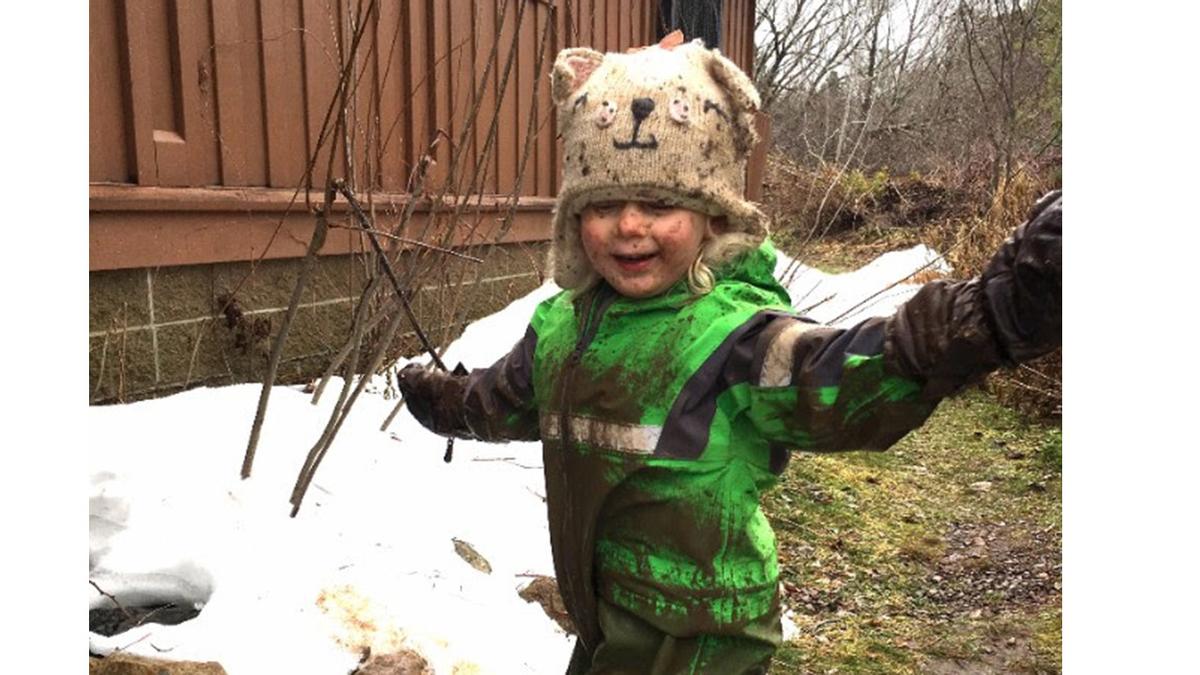Freedom to play outside has been declining for children during the last few decades and school is one of the few remaining places where they can engage in active outdoor play.
Parents, scientists, and educators in Duluth are hosting a panel discussion and screening of the award-winning film “NaturePlay: Taking Childhood Back” on how giving kids hands-on, relatively unrestricted access to nature can make them healthier and happier and may even create a better society.
Minnesota Sea Grant will host the NaturePlay event on Thursday, Nov. 30, 2017, from 5:30 p.m. to 7 p.m. in Montague Hall, room 70, on the UMD campus. The event is free and open to the public.
“We hope to nurture an ongoing discussion about how to raise our children so that they are resilient and able to make sound decisions about themselves and their communities,” said Tom Beery, Minnesota Sea Grant resilience specialist and event organizer.
“Every day the news gives us more reasons to keep our kids indoors — ticks, ice storms, rain, harmful algal blooms, heat waves and forest fires,” said Beery. “But when we take kids to the water park instead of to real water, we erode their opportunity to be engaged in and learn how to safely be in the world around them.”
In the film, kids as young as three wield fishing rods, tie their own knots and climb steep inclines and walls. They are given saws and knives and taught how to use them properly. They are encouraged to build fires and they help prepare school meals. If they occasionally get hurt, that’s an opportunity to learn their own boundaries.
“Through the film and panel discussion, we’re trying to reclaim outdoor play as a valuable part of our children’s education,” said Beery.
The documentary shows the Scandinavian method of teaching, living and being in nature, juxtaposed with a high-stress standardized testing culture not uncommon in the United States. Being in nature, the filmmakers say, gives children experience in both being self-sufficient and working as part of a team, but it does not give them instructions and rules for action.
“If children don’t have sufficient risky play opportunities, they will not develop the ability to cope with situations that induce fear,” said Beery. “Children need time and space and opportunity to learn how to figure things out for themselves.”
Following the film, three presenters will highlight local research and programming on nature play for children in Duluth. Beery will present his recent research on what children collect from nature – such as rocks, bones, feathers, shells - and their attachment to place. UMD Environmental and Outdoor Education Program Professor Julie Ernst and students will present their research on the impact of local nature preschools on children’s development. UMD EOE Professor Ken Gilbertson will share how students wrote an award-winning plan based on NaturePlay for the city of Brooklyn Park, Minnesota.
Members of the Duluth Nature Play Collaborative will highlight the efforts of local preschools, kindergarten classes, adventure clubs, playscape consultants and university programs and how to team up to educate, inspire and advocate for kids and nature in the Northland.
“The work of Minnesota Sea Grant involves addressing water challenges and many of our greatest water challenges come down to questions of human behavior,” said Beery. “If we don’t do a better job understanding human decision making at all ages, then we’re ultimately going to fail in safeguarding the resources we need to survive.”
About Minnesota Sea Grant:
Minnesota Sea Grant facilitates interaction among the public and scientists to enhance communities, the environment and economies along Lake Superior and Minnesota's inland waters by identifying information needs, fostering research, and communicating results. We are part of the National Oceanic and Atmospheric Administration Sea Grant Program, which supports 33 similar programs in coastal states throughout the United States and Puerto Rico. Supported through the NOAA Office of Oceanic and Atmospheric Research and the University of Minnesota, the program partners with local, regional and national organizations and is an integral member of the Great Lakes Sea Grant Network.
Photograph by Aaron Crowell
